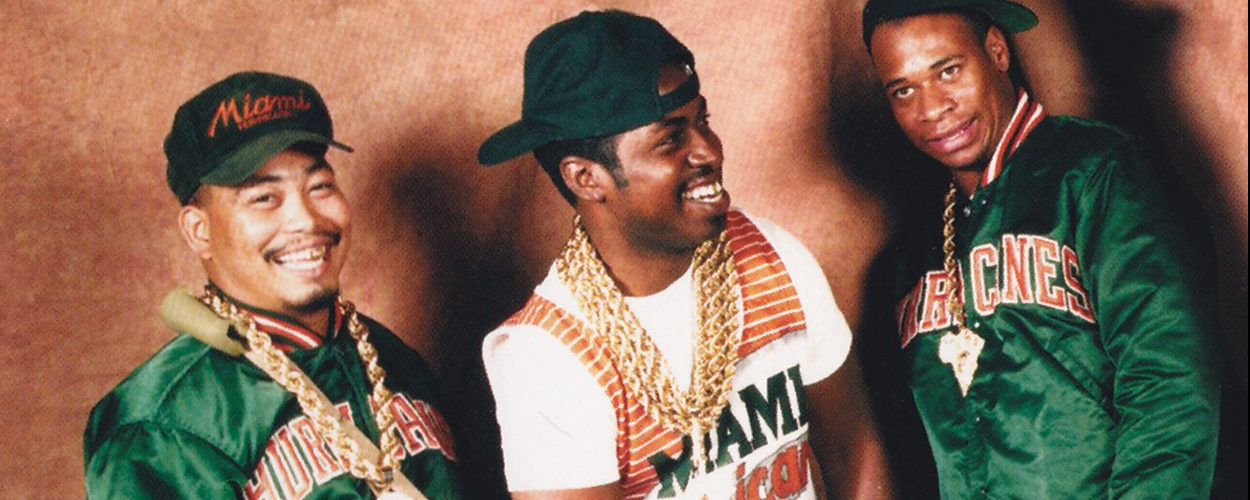This website uses cookies so that we can provide you with the best user experience possible. Cookie information is stored in your browser and performs functions such as recognising you when you return to our website and helping our team to understand which sections of the website you find most interesting and useful.
Artist News Business News Labels & Publishers Legal Top Stories
2 Live Crew’s termination rights dispute discussed in court
By Chris Cooke | Published on Monday 10 July 2023

An ongoing termination rights dispute between Lil Joe Records and the 2 Live Crew got a hearing in the American courts last week. A key part of the dispute centres on whether or not bankruptcy proceedings that took place in the mid-1990s impact the rights of each 2 Live Crew member to reclaim copyrights in their old recordings. Both parties agreed that’s a question that hasn’t been answered in court before.
The music under dispute here was originally released by Luke Records, the label run by 2 Live Crew member Luther Campbell. Those recordings were then acquired by Lil Joe Records – along with other copyrights and trademarks controlled by the group – in 1996 when both Campbell and Luke Records went bankrupt. Lil Joe Records is owned by Joe Weinberger, a lawyer who worked for Campbell prior to the collapse of his label.
But is any of that relevant to the termination rights claim made by Campbell and his former bandmates Mark Ross and Christopher Wong Won (or, in the case of the latter, who died in 2017, his estate)?
Under US copyright law, creators who assign – or transfer – their copyrights to a third party have a one-time opportunity to terminate that assignment and reclaim their rights after 35 years.
The current termination right was added to copyright law in the late 1970s, meaning it only really came into effect in the early 2010s, as we got to the point where 35 years had passed since the first assignment deals done after the law was changed.
In the music industry, it’s now common practice for songwriters to terminate publishing deals in this way. However, on the recordings side, there remains a dispute as to whether the termination right even applies. Many labels argue that, under the US system, record deals are work-for-hire agreements, which make the label not the artist the default owner of any recording copyrights created. Therefore there is no assignment to terminate.
Artists and their lawyers dispute that record deals are really work-for-hire agreements, even if they claim to be in the wording of the contract. That dispute is yet to be properly tested in court, though there are test cases going through the motions. Meanwhile, plenty of artists have been able to renegotiate old record deals in the US by threatening to enforce the termination right in court.
For its part, since going legal in 2021, Lil Joe Records has made the work-for-hire argument regarding the attempts by 2 Live Crew members to terminate their old deals with Luke Records. But the label also claims that the old bankruptcy proceedings have an impact too.
According to Law360, a legal rep for the label last week told the judge overseeing the dispute that the hip hop group’s members gave up any rights they had in relation to their recordings when Luke Records went bankrupt in the 1990s. Mainly because none of them objected to the bankruptcy proceedings that resulted in the copyrights in their output being bought by Lil Joe Records.
Not only that, but the bankruptcy order issued at that time stated that the assets being acquired by Weinberger were “free of liens, claims or encumbrances”. And “the right to terminate is not a lien or a claim, but it is definitely an encumbrance”, the lawyer told the court.
However, a legal rep for the group argued that the US Copyright Act overrules the bankruptcy order, because things like the termination right are designed to protect creators, and especially young creators interacting with business partners that might not have their best interests at heart.
And 2 Live Crew needed exactly that kind of protection, their legal rep stated. Because back in the 1990s they “made a mistake of trusting an attorney, Joe Weinberger. They brought him in as a trusted adviser. And what did Mr Weinberger do? He ran the company into bankruptcy. Then he bought up the assets, bought up the music, and launched his own record label”.
As for the work-for-hire element of the dispute, Lil Joe Records’ lawyer noted that Campbell was very much an employee of Luke Records when the recordings under dispute were made, which means he definitely had a work-for-hire relationship with his label.
However, lawyers for 2 Live Crew countered that the employment relationship only related to his work running the label, and not to his creative output as an artist. And anyway, Campbell’s employee status back in the day doesn’t affect Ross or Wong Won.
Regarding all that, this case mirrors the other termination rights cases against labels that are underway. However, when it comes to whether or not past bankruptcy proceedings can interfere with an artist’s termination rights, this could be the case that sets a precedent.
Both sides want a summary judgement in their favour. We await to see how the judge rules.





